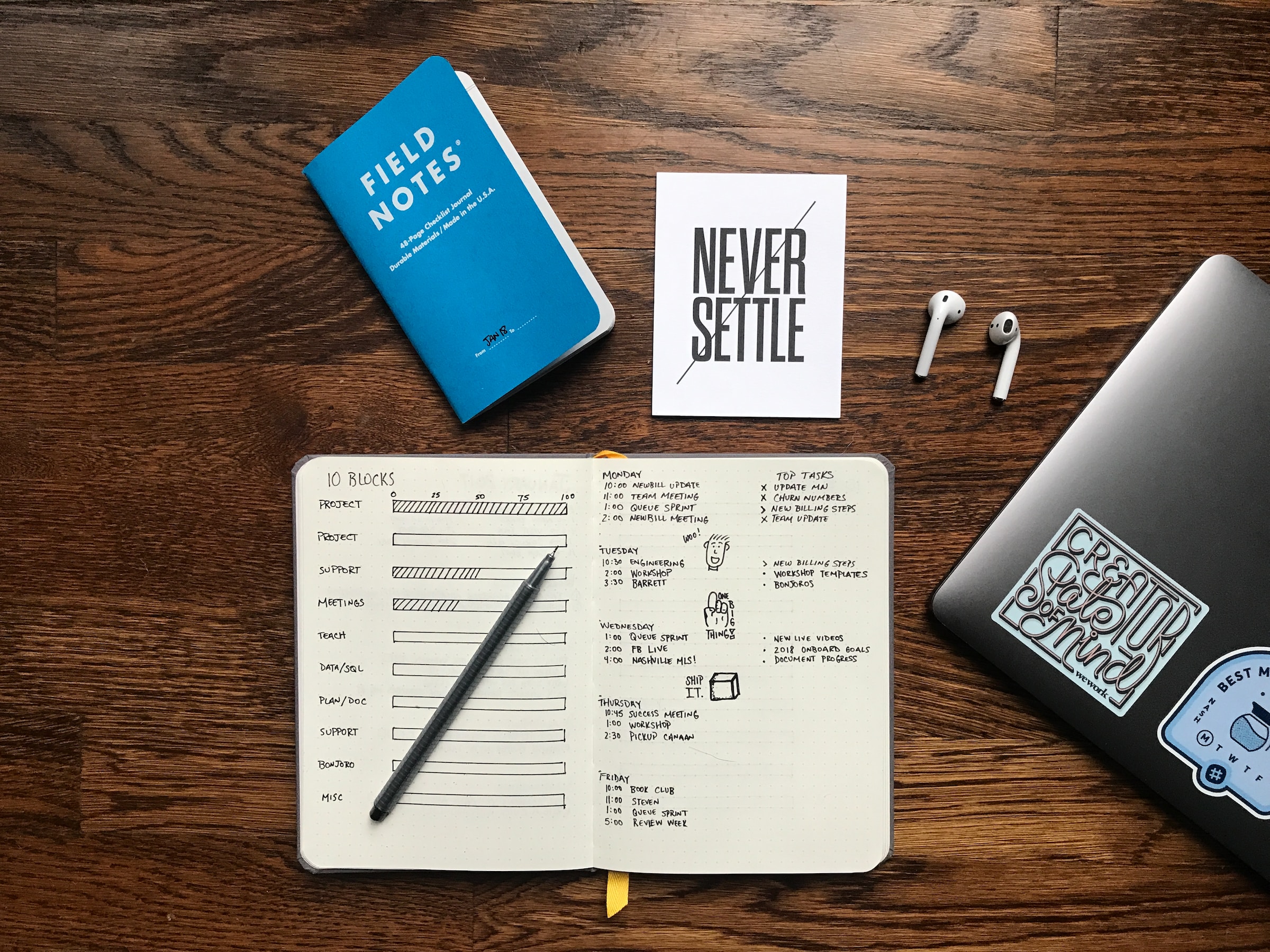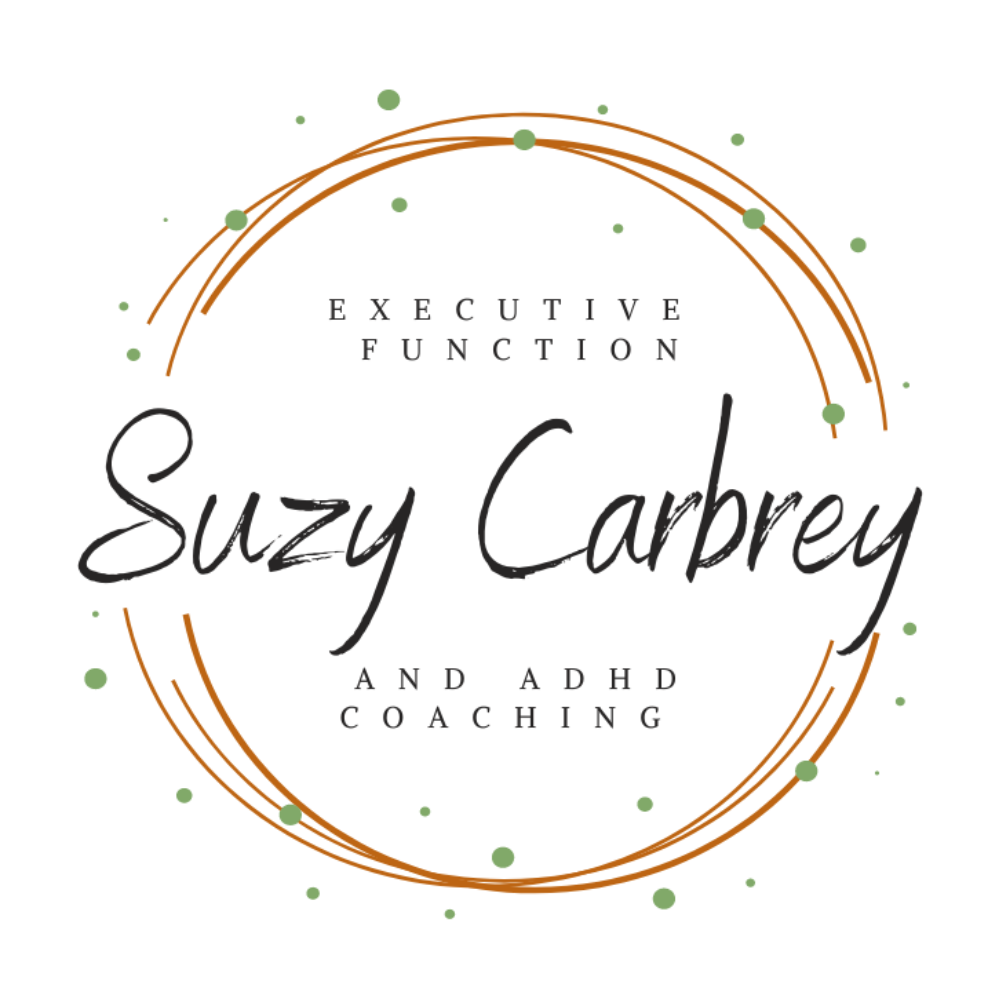Finding Middle Ground is written by Suzy Carbrey
Living with ADHD often means grappling with a mind that swings between extremes. One moment, you’re hyper-focused on a task, and the next, you’re overwhelmed by the sheer number of things on your plate, leading to paralysis. This all-or-nothing mindset is a common struggle for many adults with ADHD, but there’s hope. By understanding why this happens and learning practical strategies, you can start making small, impactful changes to reclaim balance in your life.
Why the All-or-Nothing Mindset is Common in ADHD for Finding Middle Ground

Executive Function Challenges in Finding Middle Ground
ADHD affects the brain’s executive functions, which are crucial for planning, prioritizing, and managing tasks. These functions help us organize our thoughts and actions to achieve specific goals. When executive function is impaired:
- Difficulty Planning: Tasks can seem overwhelmingly complex because breaking them down into smaller, manageable parts is challenging. This can lead to procrastination or an all-out effort to complete the task in one go, often resulting in burnout.
- Prioritization Issues: Deciding which tasks are most important can be tough. Without clear priorities, everything feels urgent, leading to either frantic activity or complete shutdown.
- Task Management Problems: Keeping track of multiple steps or tasks can be overwhelming. This can cause a tendency to either focus intensely on one task (sometimes to the detriment of others) or avoid starting tasks due to the perceived complexity.
Finding Middle Ground & Emotional Regulation
People with ADHD often experience emotions more intensely, which can significantly impact their behavior and decision-making:
- Intense Frustration: When tasks aren’t going as planned, the frustration can be overwhelming. This can lead to a cycle of negative self-talk, where you berate yourself for not being able to complete a task perfectly.
- Emotional Avoidance: The fear of failing or not meeting your own high standards can cause you to avoid tasks altogether. This avoidance can then trigger feelings of guilt and shame, further entrenching the all-or-nothing mindset.
- Impulse Control: The impulsivity associated with ADHD can make it difficult to pause and consider the best approach to a task. This can result in jumping into tasks without proper planning or avoiding them due to the fear of impulsive mistakes.
Perfectionism in Finding Middle Ground
Many individuals with ADHD struggle with perfectionism, which can be paralyzing:
- Fear of Failure: The belief that anything less than perfect is unacceptable can prevent you from starting tasks. This fear creates a high-pressure environment where the risk of making mistakes feels too great.
- Black-and-White Thinking: Viewing tasks in extremes—either as complete successes or total failures—can make it difficult to appreciate partial progress. This can lead to an “all-in” effort to achieve perfection or complete avoidance if perfection seems unattainable.
- Overcritical Self-Evaluation: Constantly judging your performance harshly can reinforce the need for perfection. This self-criticism can erode confidence and make it harder to take on new challenges.
Time Management Difficulties when Finding Middle Ground
ADHD often distorts the perception of time, complicating task management:
- Time Blindness: This term describes the difficulty in estimating how long tasks will take. Underestimating time can lead to rushing and last-minute scrambles, while overestimating can cause procrastination.
- Procrastination: Difficulty in starting tasks due to time misestimation or fear of failure can result in chronic procrastination. This procrastination often leads to last-minute efforts that reinforce the all-or-nothing pattern.
- Hyperfocus: While hyperfocus can be productive, it often results in spending excessive time on a single task at the expense of others. This can cause imbalance and a backlog of other tasks, creating a cycle of catch-up and burnout.
How to Break Free from the All-or-Nothing Pattern when Finding Middle Ground

1. Acknowledge the Pattern
- Self-awareness: Begin by tracking your thoughts and feelings. Notice when you’re thinking in extremes, such as “I have to do this perfectly or not at all” or “If I can’t complete this, it’s a failure.”
- Journaling: Write down instances when you catch yourself engaging in all-or-nothing thinking. Note what triggered these thoughts and how they made you feel.
- Mindfulness: Practice being present and observing your thoughts without judgment. Mindfulness meditation can help you become more aware of your thinking patterns.
2. Set Realistic Goals
- NICE Goals: Ensure that your objectives are Necessary, Inspirational, Concrete, and Evaluated. By focusing on goals that are essential and align with your core needs, you create a solid foundation. Make sure your goals are Inspirational to keep you motivated and energized. Define them in Concrete terms with clear, actionable steps to follow. Regularly have them Evaluated to assess progress and make adjustments as needed, ensuring you stay on track.
- Chunking: Break larger tasks into smaller, actionable steps. For example, instead of “clean the house,” break it down to “vacuum the living room” or “wipe down kitchen counters.”
- Incremental Progress: Focus on progress rather than perfection. Celebrate each completed step, no matter how small.
3. Use Time Blocks
- Pomodoro Technique: Use a timer to work in short, focused intervals (typically 25 minutes), followed by a 5-minute break. This can increase productivity and reduce burnout.
- Time Blocking: Schedule specific periods for different tasks throughout your day. This can help create a sense of structure and limit the time spent on any single task, preventing overwhelm.
- Buffer Time: Include buffer times between tasks to account for transitions and unexpected interruptions.
4. Practice Self-Compassion
- Positive Self-Talk: Replace negative self-talk with affirmations and constructive feedback. Instead of “I failed,” try “I did my best, and I can improve next time.”
- Forgiveness: Allow yourself to make mistakes without harsh self-criticism. Understand that errors are part of growth and learning.
- Self-Care: Engage in activities that nurture your well-being, such as exercise, hobbies, or relaxation techniques.
5. Seek Support
- Accountability Partners: Share your goals with a friend, family member, or coach who can offer encouragement and hold you accountable.
- Support Groups: Join groups where you can connect with others facing similar challenges. Sharing experiences can provide validation and practical advice.
- Professional Help: Consider working with a therapist or ADHD coach who can provide tailored strategies and support.
6. Mindfulness and Stress Management
- Mindfulness Practices: Engage in activities like mindfulness meditation, which involves focusing on your breath and staying present in the moment. Apps like Headspace or Calm can be helpful.
- Breathing Exercises: Practice deep breathing techniques to reduce stress and increase focus. For example, try the 4-7-8 breathing method: inhale for 4 seconds, hold for 7 seconds, and exhale for 8 seconds.
- Regular Exercise: Physical activity can reduce stress, improve mood, and increase concentration. Find a form of exercise you enjoy and make it a regular part of your routine.
These strategies can be particularly beneficial for adults with ADHD when finding middle ground, as they address common challenges such as time management, perfectionism, and emotional regulation. Implementing these approaches can lead to a more balanced and productive life.
Small Steps to Start Making Changes when Finding Middle Ground

Prioritize Tasks for Finding Middle Ground
Each day, list three to five tasks you want to accomplish, focusing on these rather than an overwhelming to-do list. Start with the most important or urgent tasks and tackle them at your own pace. Ranking tasks by priority or deadline can help you avoid decision fatigue and ensure critical tasks are addressed first.
Set Achievable Milestones
For larger projects, break them into smaller milestones. For example, instead of “clean the entire house,” start with “tidy the living room for 10 minutes.” Using the Pomodoro Technique, working for 25 minutes followed by a 5-minute break, can help maintain focus and productivity without feeling overwhelmed for finding middle ground.
Establish Routines
Consistent routines can help reduce the chaos of ADHD. Set regular times for tasks such as checking emails, exercising, or relaxing. Starting with a morning routine that sets a positive tone for the day, such as making your bed, having breakfast, and a short exercise or meditation session, can be particularly effective.
Reflect and Adjust
At the end of each day, reflect on what you’ve achieved and adjust your goals and strategies as needed without judgment. Keeping a journal to jot down what worked well and what didn’t can help you identify patterns and make more effective adjustments over time.
Visual Aids with Finding Middle Ground
Use planners, apps, or visual boards to track progress. Seeing your achievements can reinforce a sense of accomplishment and motivate you to continue. Color-coding tasks and milestones can make your visual aids more engaging and easier to follow, and using sticky notes can provide a dynamic and flexible planning system.
Reward Yourself
After completing tasks or reaching milestones, reward yourself with something enjoyable. Positive reinforcement can build a habit of productivity. Choose rewards that are meaningful and motivating for you, such as a favorite snack, a short walk, or time spent on a hobby you enjoy.
Additional Points for Finding Middle Ground

Limit Distractions when Finding Middle Ground
Create a workspace that minimizes distractions, including turning off notifications, using noise-canceling headphones, or setting specific times to check social media.
Practice Self-Compassion in Finding Middle Ground
Be kind to yourself and recognize that progress is not always linear and setbacks are a natural part of the process for finding middle ground. Celebrate your efforts, not just the outcomes.
Regular Exercise and Healthy Diet is key for Finding Middle Ground
Physical activity and a balanced diet can significantly impact your ability to focus and manage ADHD symptoms. Incorporate regular exercise into your routine and be mindful of your nutritional choices.
Conclusion: Finding Middle Ground
In conclusion, creating space isn’t just about creating physical room; it’s about creating mental and emotional freedom for adults with ADHD to flourish. Slowing down, being intentional, practicing mindfulness, and embracing essentialism are all interconnected strategies that work synergistically to empower individuals on their journey of reflection and empowerment.
Creating space is a journey, not a destination. It requires practice, reflection, and a willingness to adapt. Strategies such as journaling, mindfulness exercises, and seeking support from therapists or support groups can aid in this process. Celebrate progress, no matter how small, and be compassionate with yourself during setbacks.
Slowing down allows for introspection and reevaluation of behaviors and assumptions, leading to more authentic and purposeful actions. Intentionality guides these actions, ensuring they align with personal values and goals, while mindfulness enhances focus, emotional regulation, and executive functioning. Essentialism, on the other hand, simplifies life by focusing on what truly matters, minimizing distractions, and creating space for what brings fulfillment and joy.
By combining these strategies and practices, individuals with ADHD can cultivate a life of clarity, purpose, and resilience. It’s a continuous journey of practice, reflection, and adaptation, but the rewards are immense—greater self-understanding, improved self-management, and a sense of control over one’s life.
Remember, creating space isn’t just a one-time task; it’s a mindset and a lifestyle that empowers individuals to navigate life’s challenges with confidence and authenticity. Keep practicing, keep reflecting, and embrace the journey towards a more fulfilling and empowered life the finding middle ground.

Learn more about Finding Middle Ground with Online Coaching for Executive Functioning / ADHD
Ready to gain control and enhance your executive functioning? As an experienced and compassionate coach, I specialize in providing support for executive functioning and ADHD. To embark on your journey, please reach out to me at 708-264-2899 or email hello@suzycarbrey.com to schedule a FREE 20-minute discovery call consultation.
With a background as a speech-language pathologist, I have a strong foundation in executive functioning coaching. My graduate degree program in SLP placed a significant emphasis on cognition, including executive functions, and I have years of experience in medical rehabilitation, providing cognitive-communication therapy. Additionally, I have completed an ADHD Services Provider certification program, I am Solutions-Focused Brief Therapy Diamond Level 1 certified and I am trained in the Seeing My Time® executive functioning curriculum.
Experience the convenience and effectiveness of online coaching, backed by studies that demonstrate equal results to in-person services. Parents, professionals, and emerging adults love the convenience and privacy of receiving coaching from their own homes.
Whether you reside in Chicago, Milwaukee, Indianapolis, Kansas City, or anywhere else around the globe, I am here to assist you. Schedule your discovery call consultation today, and I eagerly anticipate the opportunity to work with you!
Please note that although I am a certified speech-language pathologist, all services Suzy Carbrey LLC provides are strictly coaching and do not involve clinical evaluation or treatment services. If you require a formal speech therapy evaluation and treatment, please inform me, and I can provide appropriate recommendations.

